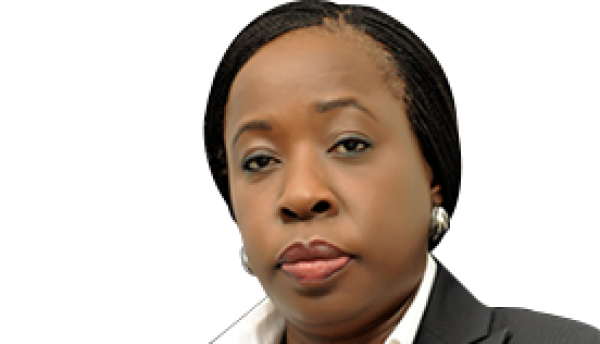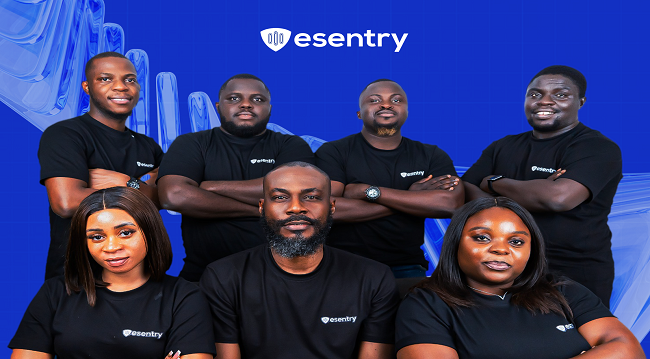E-Business
Opeke Makes Case for Increased Technology Adoption in Nigeria

Funke Opeke, Chief Executive Officer, MainOne, has emphasized the need for Nigeria to accelerate increase technology adoption, adding that a recent survey carried out by the company classified Nigeria as one of the world’s top three consumers of the Internet.
Opeke made this known at the MainOne’s flagship IT event, Nerds Unite, which held recently in Lagos with the theme ‘Radical Digital Transformation.’ She stated that aside from connectivity to the Internet, there was the need to work together in increasing the rate of technology adoption, local data hosting and content distribution in Nigeria.
Opeke further emphasized that it was important to engage technology gurus in sharing ideas and finding new ways of technology to improve the standard of living, adding that the conference was a platform designed to bring together professionals from the world of technology.
According to Opeke, “technology is critical to the sustenance of the Nigerian community. There is no way the economy will grow without technology, and the need for radical digital transformation”.
At the event, other Information Technology experts highlighted the importance of applying technology to every facet of life in line with digital transformation agenda of the Federal Government.
The keynote speaker at the event, Nnamdi Oranye, urged Nigerians to be passionate about the development of their country, adding that technology remained the only way to move the country forward.
Oranye, who is the author of ‘Disrupting Africa’, stated that a recent United Nations survey estimated that Nigeria would be the third largest country in the world by 2050.
He said Nigeria could not afford to fail as a country, adding that Africa would be highly dependent on Nigeria.
According to him, Nigeria is described as a developing country because of its low industrial base.
Oranye further stated that before the country could be developed, technology and innovation had to be used to identify new trends, incentivise actions and develop new ideas. He added that people should take advantage of available tools to build a legacy for the coming generations.
During a panel discussion centred on ‘Disruptive Solutions for Enterprise,’ Chibuzor Ezeasor, Presales Customer Solutions Manager, SAP West Africa, said technology could be used to engage customers and the workforce in an organisation.
Ezeasor shared that SAP, through its CSR programme, would organise events and training around Africa for young entrepreneurs and developers. He said SAP would also build an application for entrepreneurs to build other applications.
Also speaking at the event, Hakeem Adeniji-Adele, Chief Technology Officer, Microsoft, emphasised the need for the SMEs to adopt technology. “enterprises are driven by customer experience and engagement and technology can be adopted to get adequate feedback and suggestions”, Adeniji-Adele stated.
Adeniji-Adele, who noted the interdependence of technology and innovation, also stated that there was no way an entrepreneur could innovate without using technology.
He stated that 62 per cent of the revenue generate by Microsoft was from the innovation of CloudShare.
On the other hand, the Senior Government Manager at Avanti Communications, Srinath Logasubramanian, described innovation as critical to human existence, adding that the day innovation ends, is the day the world will come to an end.
He noted that even big companies had to be on their toes in innovation in order not be pushed out of business by new firms and hinted that Avanti would be launching a satellite system in March to cover broadband services across sub-Saharan Africa.
E-Business
Kaspersky Discovers New Phishing Campaign Exploiting Google Tasks Notifications to Steal Corporate Credentials

Kaspersky has uncovered a new phishing scheme that abuses legitimate Google Tasks notifications to trick corporate users into revealing corporate login credentials.

By leveraging Google’s trusted @google.com email domain and notification system, attackers bypass traditional email security filters and exploit users’ trust in familiar services.
In this campaign, victims receive an authentic-looking notification from Google Tasks with the subject line “You have a new task.” The message creates the illusion that the recipient’s company has adopted Google’s task management tool, pressuring them to act quickly. The notification often includes elements of urgency, such as a high-priority flag and a tight deadline, to prompt the victim’s immediate response.
Upon clicking the embedded link, users are directed to a fraudulent form disguised as an “employee verification” page, where they are asked to enter their corporate credentials under the pretense of confirming their status. These stolen credentials can then be used for unauthorised access to company systems, data theft, or further attacks.
“Google’s vast ecosystem of services gets exploited by scammers. The scheme with Google Tasks is part of a broader trend observed before and continuing into 2026, where cybercriminals misuse legitimate platforms to distribute scams and phishing.
Notifications originating from legitimate domains naturally evade many spam and phishing filters, while the social engineering aspect – making it seem like an internal company process – lowers the victim’s guard,” comments Roman Dedenok, Anti-Spam Expert at Kaspersky.
E-Business
esentry 2025 Report Shows Healthcare, Financial Services and Telecoms as Staging Grounds for Increased Cyberattacks in Africa

Cyber adversaries targeting African organisations are increasingly shifting away from opportunistic attacks toward deliberate, sector-specific campaigns aimed at the continent’s most critical digital infrastructures, according to the esentry 2025 Annual Report released by esentry, Lagos-based Africa’s leading indigenous Managed Security Service Provider (MSSP).

The report identifies healthcare, financial services, and telecommunications as the primary staging grounds for high-velocity cyberattacks, reflecting a growing focus on sectors that underpin economic stability, public welfare, and digital connectivity across Africa.
The findings are drawn from one of the largest cybersecurity datasets analysed in the region. Over the course of 2025, esentry processed more than 31 billion security events, generating 3.5 million alerts and successfully blocking over 15,000 malicious attempts. This monitoring scale shows that, while traditional financial institutions remain a core target, the threat landscape has expanded to include digital lending platforms, healthcare systems that store sensitive personal data, and telecom operators responsible for national and regional connectivity.
Within the healthcare sector, the report highlights ransomware as the most acute risk, with attackers frequently exploiting exposed Remote Desktop Protocol (RDP) services to compromise patient data and disrupt essential medical operations. In financial services, organisations are facing a surge in credential abuse, insider-related threats, and info-stealer malware designed to enable fraud and unauthorised access. Telecommunications providers are increasingly targeted by highly tailored phishing campaigns and attacks on exposed web services, which aim to harvest credentials and compromise customer data.
Commenting on the findings, Gbolabo Awelewa, Chief Business Officer at esentry, said the nature of cyber threats across Africa has evolved significantly. “The threats we are seeing today are deliberate, informed, and carefully tailored to local enterprises. Attackers are exploiting trusted access and moving quietly within networks, which makes early detection critical. Our coordinated cybersecurity model, spanning Defence, Intelligence, Offence, and Security Engineering, allows us to combine scale, speed, and deep contextual insight to detect and neutralise threats before they escalate,” Awelewa said.
A defining trend identified in the report is the shift from overt system exploitation to the abuse of legitimate access. By leveraging compromised credentials and ‘living-off-the-land’ techniques, attackers can blend into routine enterprise operations and significantly delay detection. This approach has compressed the attack lifecycle, enabling adversaries to move from initial access to full operational impact in fewer than 15 days.
To counter this acceleration, the report emphasises the importance of early detection and automated response. esentry says it currently contains low-complexity incidents in under 90 seconds, using a combination of structured threat hunting and centralised telemetry to anticipate and absorb attacker pressure rather than reacting after damage has occurred.
As African organisations continue to digitise, the esentry 2025 Annual Report positions itself as a critical reference point for understanding the continent’s evolving cyber threat environment. The report concludes that protecting Africa’s digital trust will require a shift away from fragmented security tools toward disciplined, coordinated defence frameworks, what esentry describes as a unified Phalanx formation.
E-Business
AfDB, UNDP Launch $10Bn AI Initiative for Africa

The African Development Bank Group (AfDB) and the United Nations Development Programme (UNDP) have launched an ambitious $10 billion project to support the adoption of Artificial Intelligence (AI) across the continent.

The 10 Billion Initiative intends to accelerate ethical AI adoption and inclusive digital economic growth in Africa.
The initiative follows the Nairobi AI Forum, which took place earlier this month in Kenya and brought together governments, private sector leaders, development partners, and tech innovators to define pathways for impactful AI adoption.
According to the organisations, the strategy is a co-designed collaboration between the Bank Group, UNDP, and commercial partners that aims to raise up to $10 billion by 2035.
The resources will be used to create up to 40 million new jobs across the continent by 2035, through targeted investments that provide the groundwork for AI and accelerate widespread adoption in everything from entrepreneurship and regional data infrastructure to policy frameworks and skill development.
Nicholas Williams, AfDB Group ICT operations division manager, commented: “As a leading multilateral development institution, the bank is leveraging its comparative advantage to ensure Africa is not left behind in the AI era.
“The AI 10 Billion Initiative paves the way for expanded partnerships and sustained investments that will accelerate AI entrepreneurship, strengthen data and infrastructure ecosystems, and support inclusive growth across the continent.”

 E-Business3 days ago
E-Business3 days agoAfDB, UNDP Launch $10Bn AI Initiative for Africa

 Telecom3 days ago
Telecom3 days agoGrey Expands Cross-Border Banking with USD Accounts, USDC Support

 General News2 days ago
General News2 days agoKPMG Strengthens Africa Leadership to Support Long‑term Growth Across the Continent

 News3 days ago
News3 days agoObasanjo, Vanguard’s Amuka Lead Prayers for Zinox Chief Leo Stan Ekeh @70

 News3 days ago
News3 days agoDG NITDA Reaffirms FG Commitment to Responsible, Inclusive AI

 News3 days ago
News3 days agoLotus Bank, REA Seal N100Bn Deal to Power Rural Nigeria

 E-Financial3 days ago
E-Financial3 days agoCBN Cuts MPR by 50bps to 26.50% as Inflation Eases for 11th Month

 E-Financial3 days ago
E-Financial3 days agoKuda Bank Teams Up with Lovers & Frnds for Inclusive Valentine’s R&B Bash



























